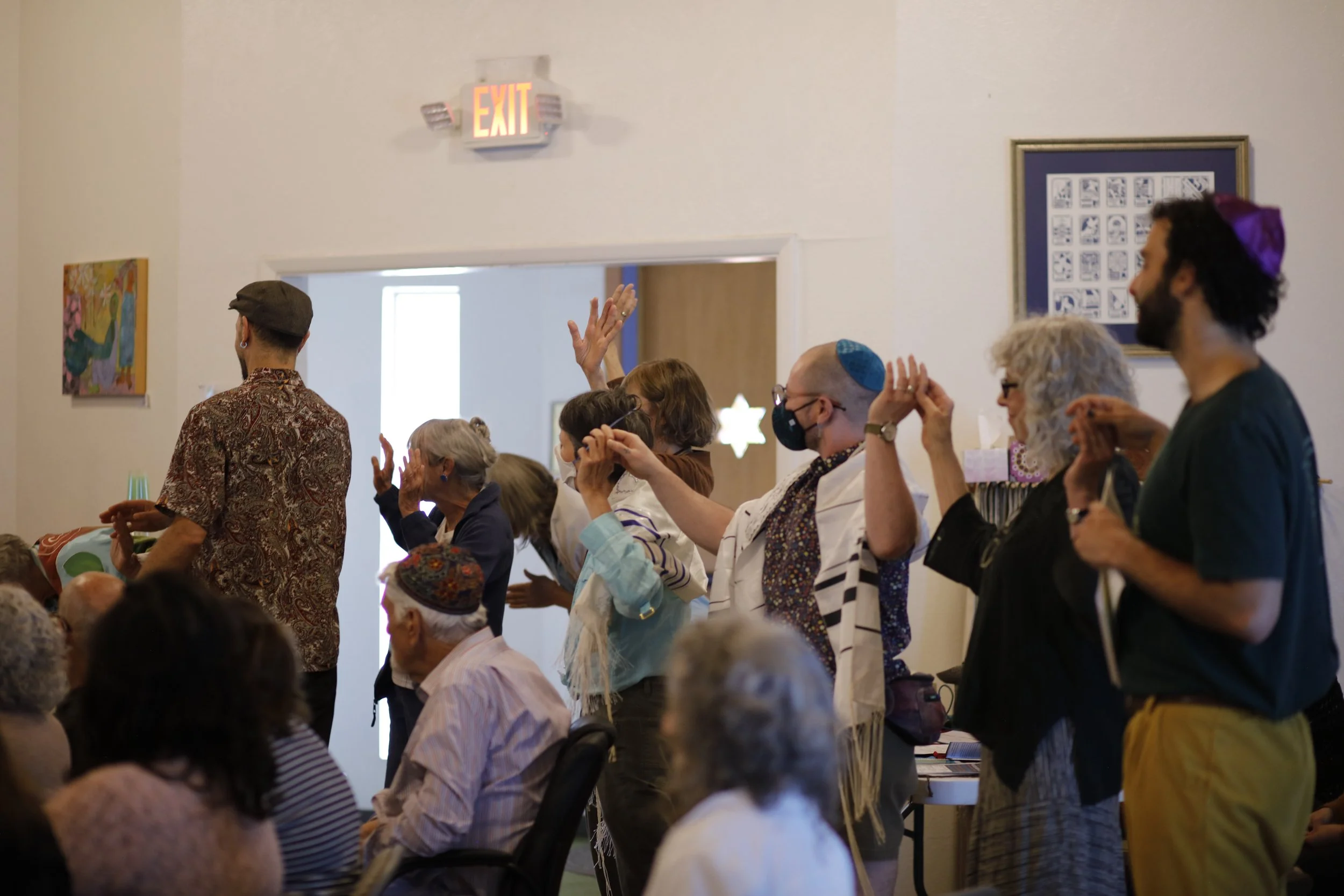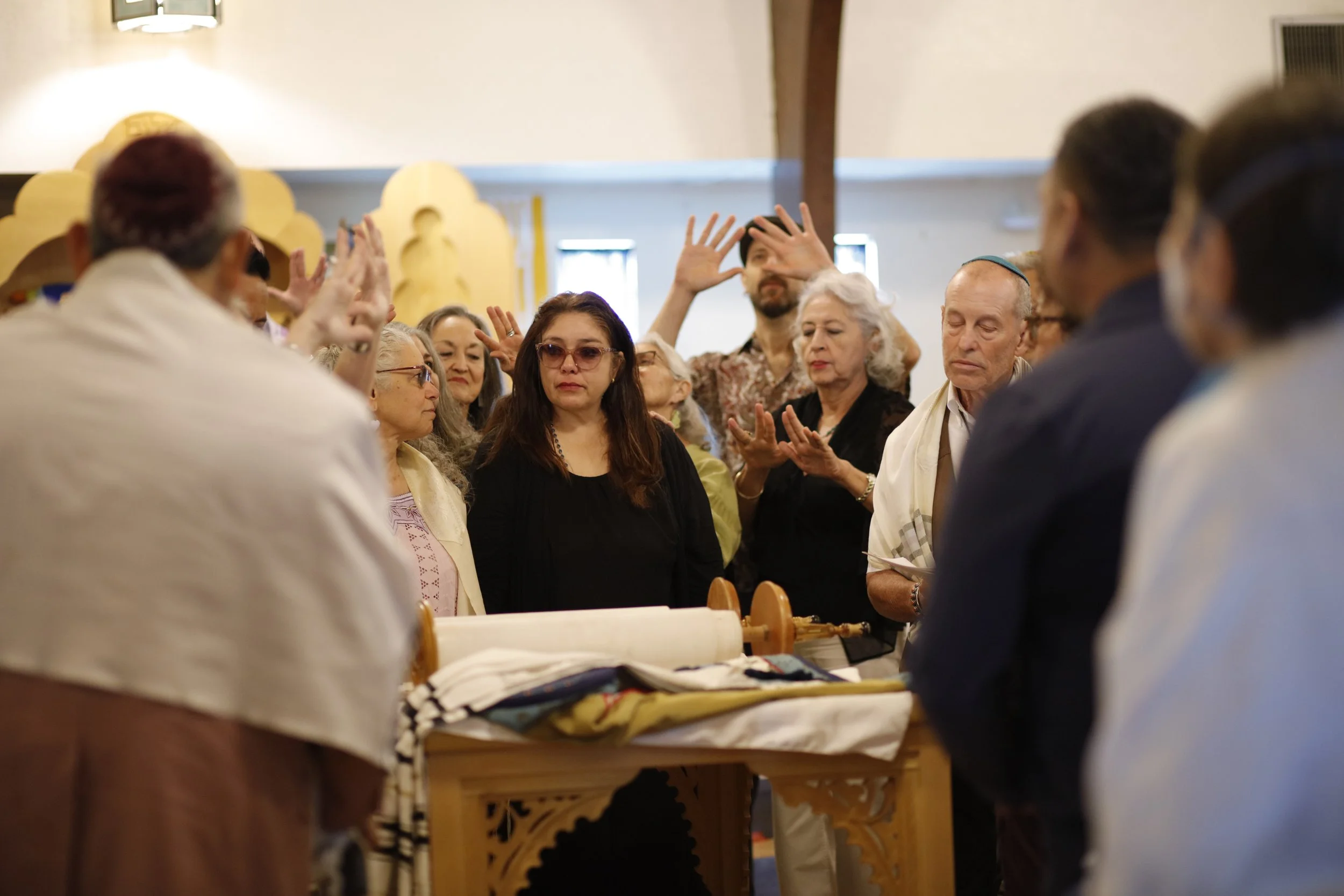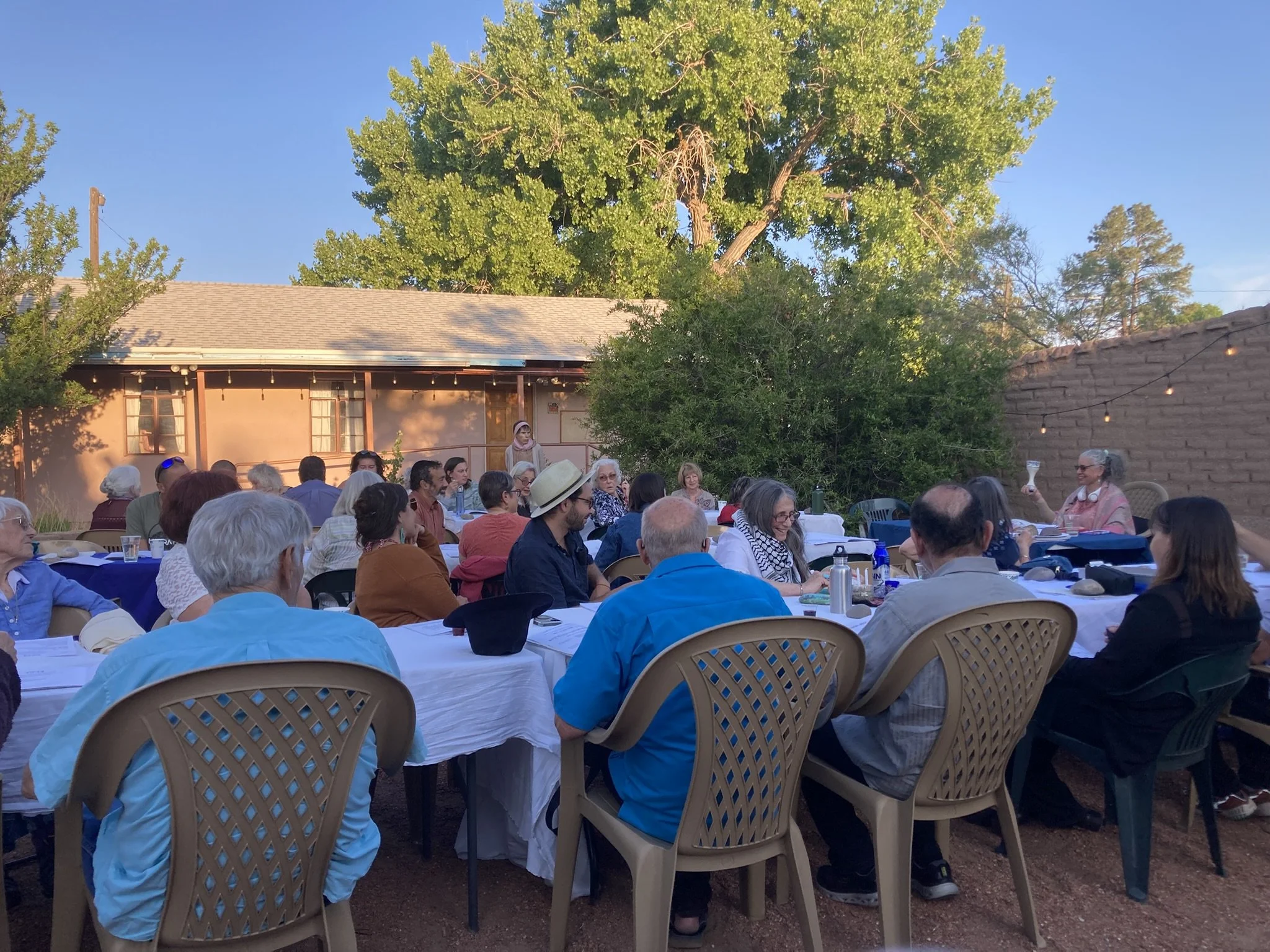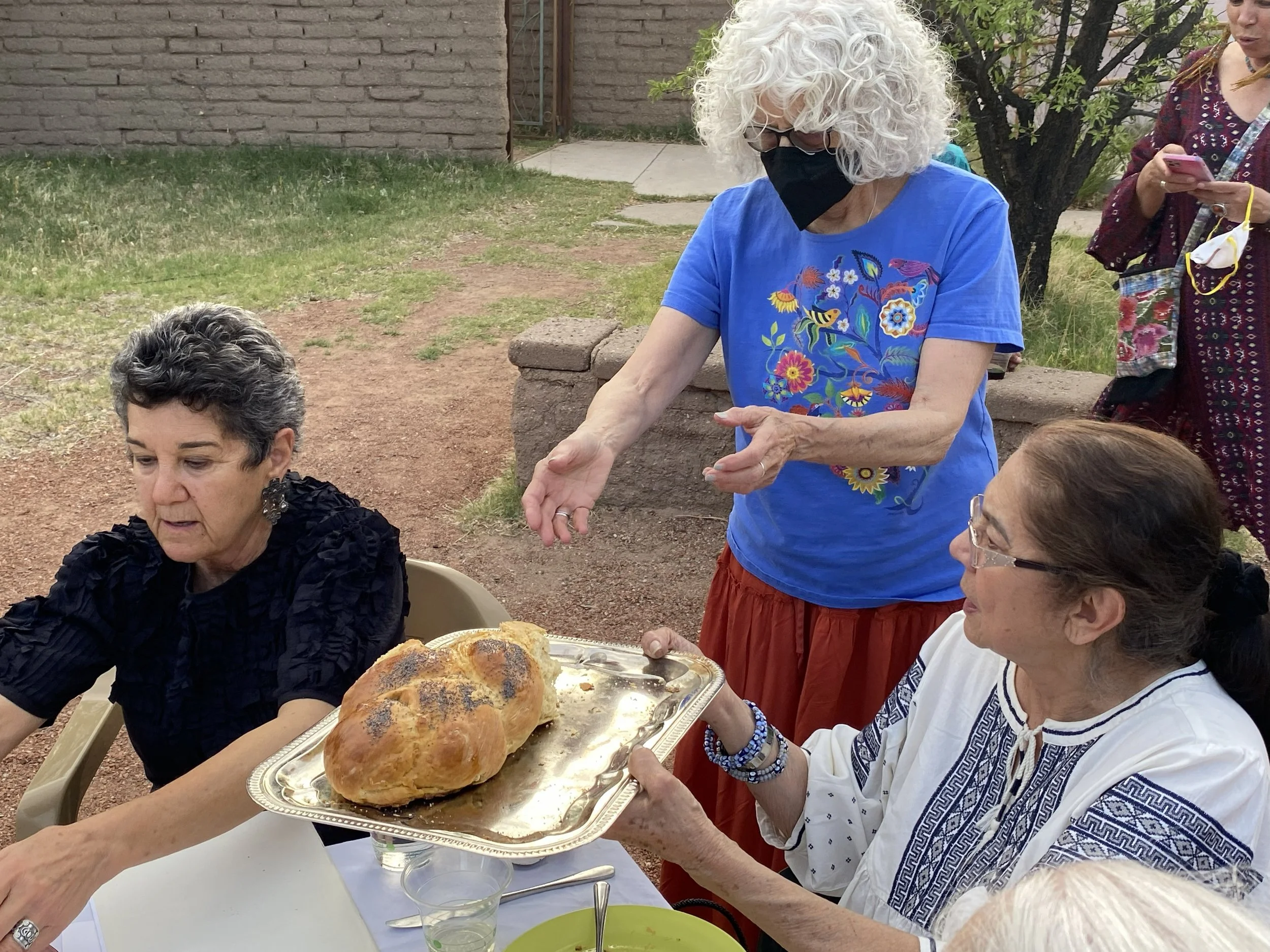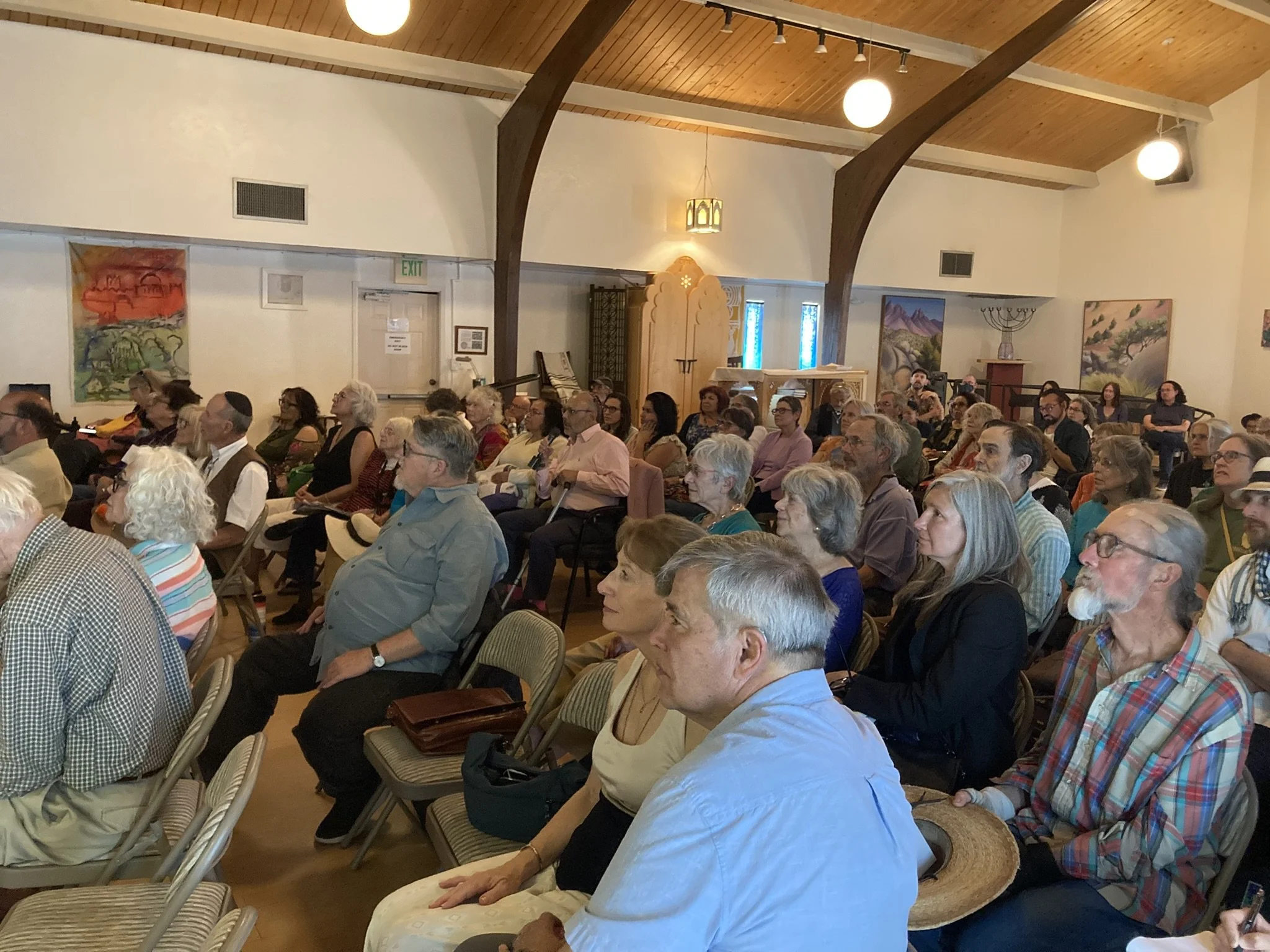Cultural Significance
Jews expelled and exiled from Spain & Mexico have been migrating and occupying Pueblo, Navajo, and Apache Lands, in what is now called New Mexico since 1598. Colonialism, assimilation, persecution, and centuries of secrecy have created a regional and spiritual complexity to Jewish identity in the Southwest. There remains cultural vestiges of Conversos (Jews who were forced to convert to Catholicism, many of which practiced their ancestral faith in secret) and their descendants that have only more recently been openly acknowledged.
Casa Sefarad at Nahalat Shalom is endeavoring to reclaim, sustain and build Sefardic* culture. We work to provide resources, compañerismo and educational programming in an environment where cross-cultural collaboration is valued, and everyone is welcome and respected.
* Casa Sefarad utilizes the spelling of Sefardic with an f to honor Hispano roots
History
Nahalat Shalom’s commitment to creating a home for the “hidden” Jews of New Mexico, began in the mid 1980’s by founding Rabbi, Emeritus Lynn Gottlieb, and continues today under the aegis of Casa Sefarad.
As Sefardic Converso Jews began confiding in her with their stories, Rabbi Lynn recognized the breadth of this population existing outside of established Jewish institutions. She continued to intentionally incorporate Ladino prayer and melody into Nahalat Shalom’s services, and this developed into a regular Sephardic Shabbat service led by Lorenzo (Lawrence) Dominguez and Maria Sanchez. Lorenzo, whose Hebrew name was Levi ben Macario, was well known for his award winning radio program “Mi Seferino”, aired on KUNM-FM in 1999 and 2000. He accompanied himself on guitar and later on oud, while singing and chanting the Friday evening service.
Nahalat Shalom’s cantorial soloist, Beth Cohen, worked closely with Lorenzo and Rabbi Lynn, forming the synagogue’s High Holy Days band “Alavados”, and continues to enrich the Sephardic experience with her vast knowledge and love of the music. Beth began singing and contributing music to Nahalat Shalom in 1991 and has played a central role in the development of Sephardic and crypto-Jewish programming there.
Throughout the 1990’s outreach to the crypto-Jewish community resulted in many return ceremonies, poetry readings, music, and several Sefardic Festivals organized by Lorenzo.
Lorenzo Dominguez’s tragic death in 2003 dealt the congregation a terrible blow. His presence was huge and his visibility and leadership as a crypto-Jew blazed a wide path for others to follow in discovering and celebrating their Jewish identity and finding a welcoming community.
The annual celebration of Sephardic Culture, Festival Djudeo-Espanyol, was founded in 2010. Now known as Festival Sefardí, the festival takes place every May. Casa Sefarad was created in 2016, and has evolved to include Shabbat ceremonies, multi-lingual readings, a poetry translation project, and the Sefardic Learning Center which houses a library of Sefardic history and will soon be offering more expansive programming.
We are deeply indebted to the groundbreaking work and vision of Nahalat Shalom’s founder Rabbi Emerita Lynn Gottlieb, Cantor Beth Cohen, Lorenzo Dominguez (z”l) and Dr. Maria Sanchez.
Photo credit: Cary Herz, from New Mexico's Crypto-Jews, 2008, University of New Mexico Press.
Lorenzo Dominguez, Levi ben Macario, by the Rio Grande, Albuquerque, New Mexico, 1999.
Programming
Monthly Sefardic Shabbat Dinners, where we sing and pray together in Ladino and Hebrew. Following embodied ritual we connect with each other through a bilingual reading of Sefardic poetry. Stephanie Sofie Shefia Cohen leads the ceremony with poetry curated and translated by Héctor Contreras López with Marciel Romero.
Quarterly Saturday morning Shabbat Ceremonies in Spanish, Ladino, Hebrew and English with live music by La Flores del Valle and other musicians.
Annual weekend long celebration of the Sefardic Jews of the Southwest, which is now in its 17th year. (Festival Sefardí).
Ongoing collaboration with Héctor Contreras López for the Sefardic Poetry Translation Project.
El centro de estudios sefarditas, The Sefardic Learning Center, houses work by regional Sefardic artists and a diverse collection of books related to Sefardic history and culture. Will soon be a gathering space for lectures, classes, and community building.

